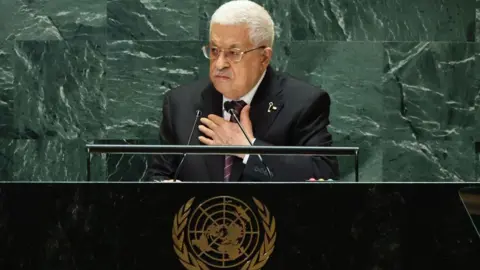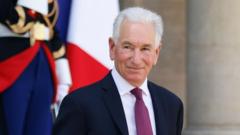The United States has officially announced its intention to withdraw from UNESCO, the United Nations educational, scientific, and cultural organization, marking a significant shift in its engagement with international institutions under the Trump administration. This decision, which was conveyed by the State Department, will be enacted at the end of the following year and aligns with President Trump’s ongoing skepticism towards multinational frameworks and organizations connected to the United Nations.
Tammy Bruce, a spokesperson for the State Department, issued a statement expressing that continued participation in UNESCO is not aligned with the national interests of the United States. She criticized UNESCO for what she described as promoting "divisive social and cultural causes" and being overly committed to the UN’s Sustainable Development Goals, which she argued do not correspond with the "America First" doctrine.
The U.S. has a tumultuous history with UNESCO, with multiple withdrawals occurring over the years. Initially, the United States ceased contributions to UNESCO in 2011 after the organization admitted Palestine as a full member. This action was mandated by U.S. legislation that restricts funding to any UN agency recognizing Palestine as a member state, resulting in a significant financial shortfall for UNESCO. The Trump administration furthered this divide in 2017 by pulling out of the organization entirely, citing perceived anti-Israel bias.
The newest decision to depart from UNESCO follows a precedent set when President Biden's administration reinstated U.S. membership in 2023 after assessing that a void left by the U.S. presence allowed other powers, particularly China, to gain influence within the organization.
UNESCO is renowned for its role in designating World Heritage sites—the list has expanded exponentially since its inception in 1972—and for promoting initiatives related to education, gender equality, and cultural preservation. The implications of the U.S. exit may significantly reshape the landscape of international collaboration on cultural and educational initiatives.
Tammy Bruce, a spokesperson for the State Department, issued a statement expressing that continued participation in UNESCO is not aligned with the national interests of the United States. She criticized UNESCO for what she described as promoting "divisive social and cultural causes" and being overly committed to the UN’s Sustainable Development Goals, which she argued do not correspond with the "America First" doctrine.
The U.S. has a tumultuous history with UNESCO, with multiple withdrawals occurring over the years. Initially, the United States ceased contributions to UNESCO in 2011 after the organization admitted Palestine as a full member. This action was mandated by U.S. legislation that restricts funding to any UN agency recognizing Palestine as a member state, resulting in a significant financial shortfall for UNESCO. The Trump administration furthered this divide in 2017 by pulling out of the organization entirely, citing perceived anti-Israel bias.
The newest decision to depart from UNESCO follows a precedent set when President Biden's administration reinstated U.S. membership in 2023 after assessing that a void left by the U.S. presence allowed other powers, particularly China, to gain influence within the organization.
UNESCO is renowned for its role in designating World Heritage sites—the list has expanded exponentially since its inception in 1972—and for promoting initiatives related to education, gender equality, and cultural preservation. The implications of the U.S. exit may significantly reshape the landscape of international collaboration on cultural and educational initiatives.























